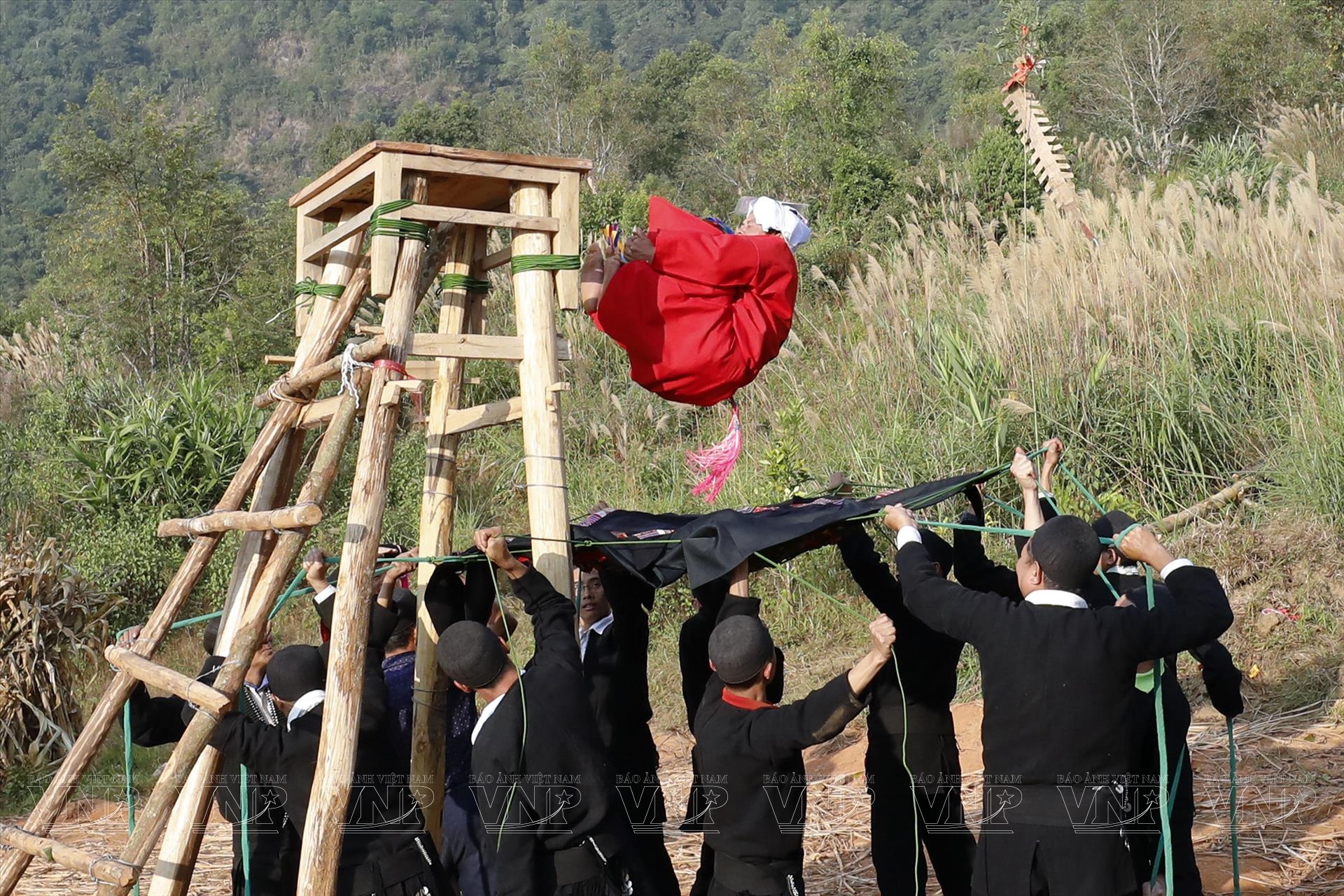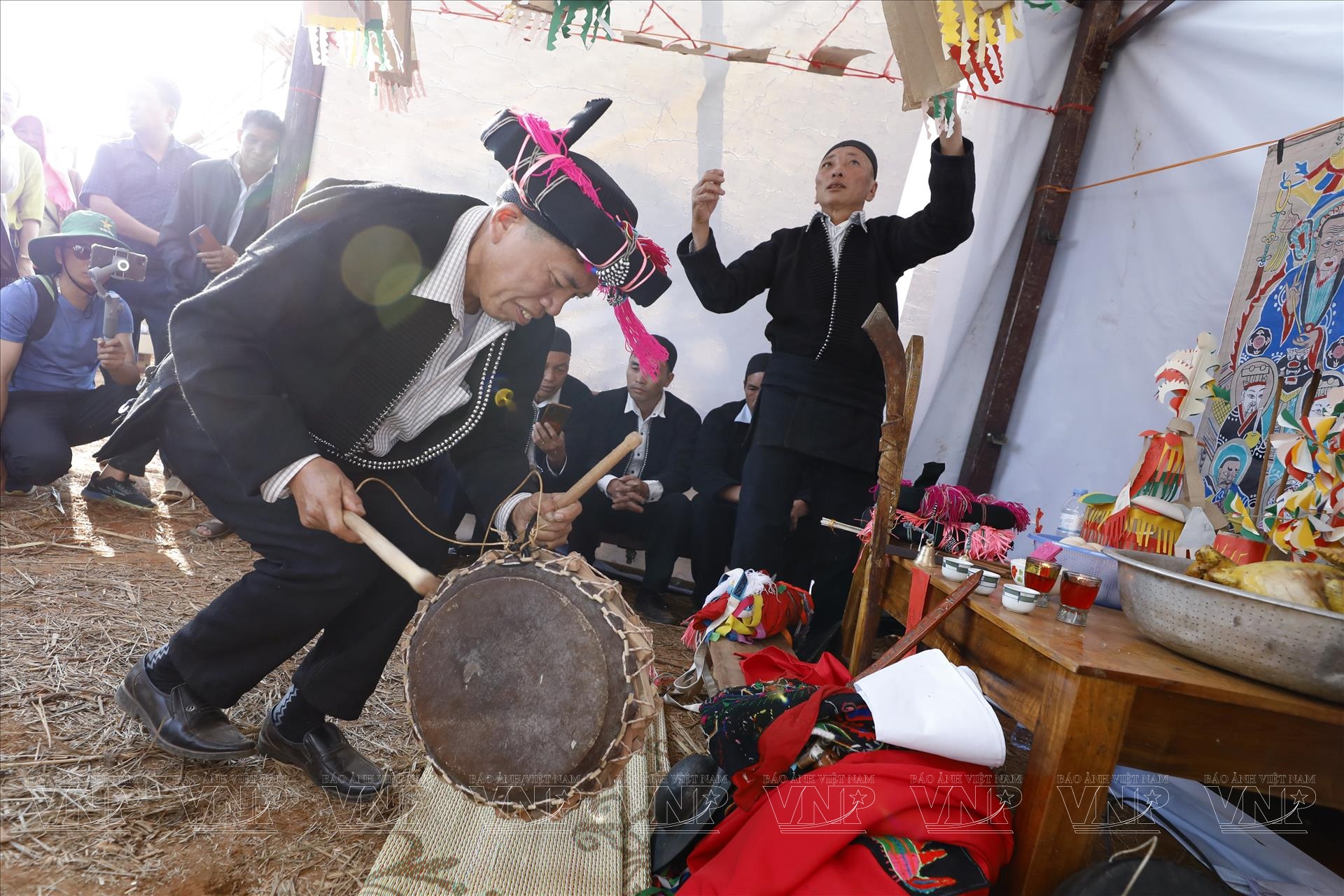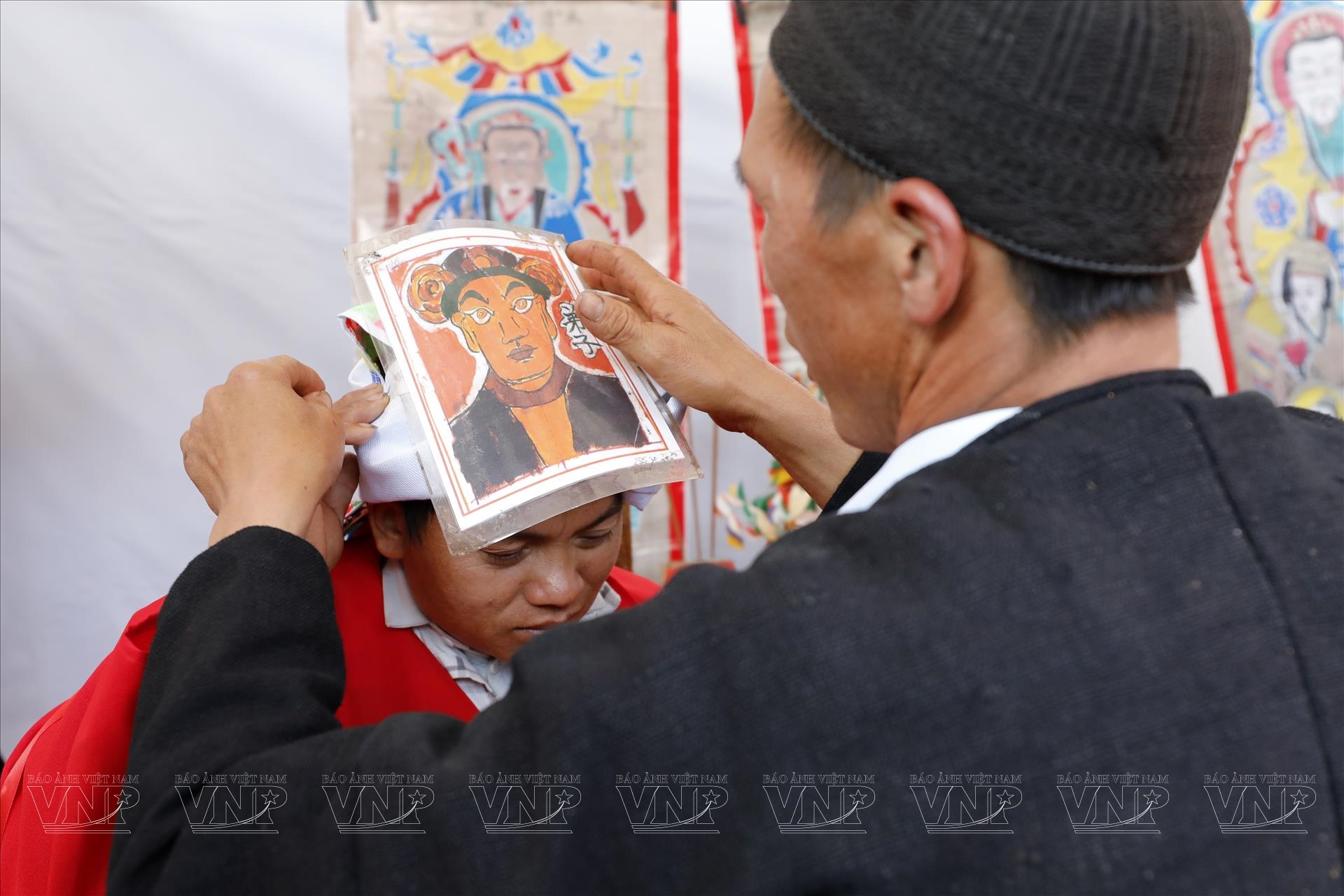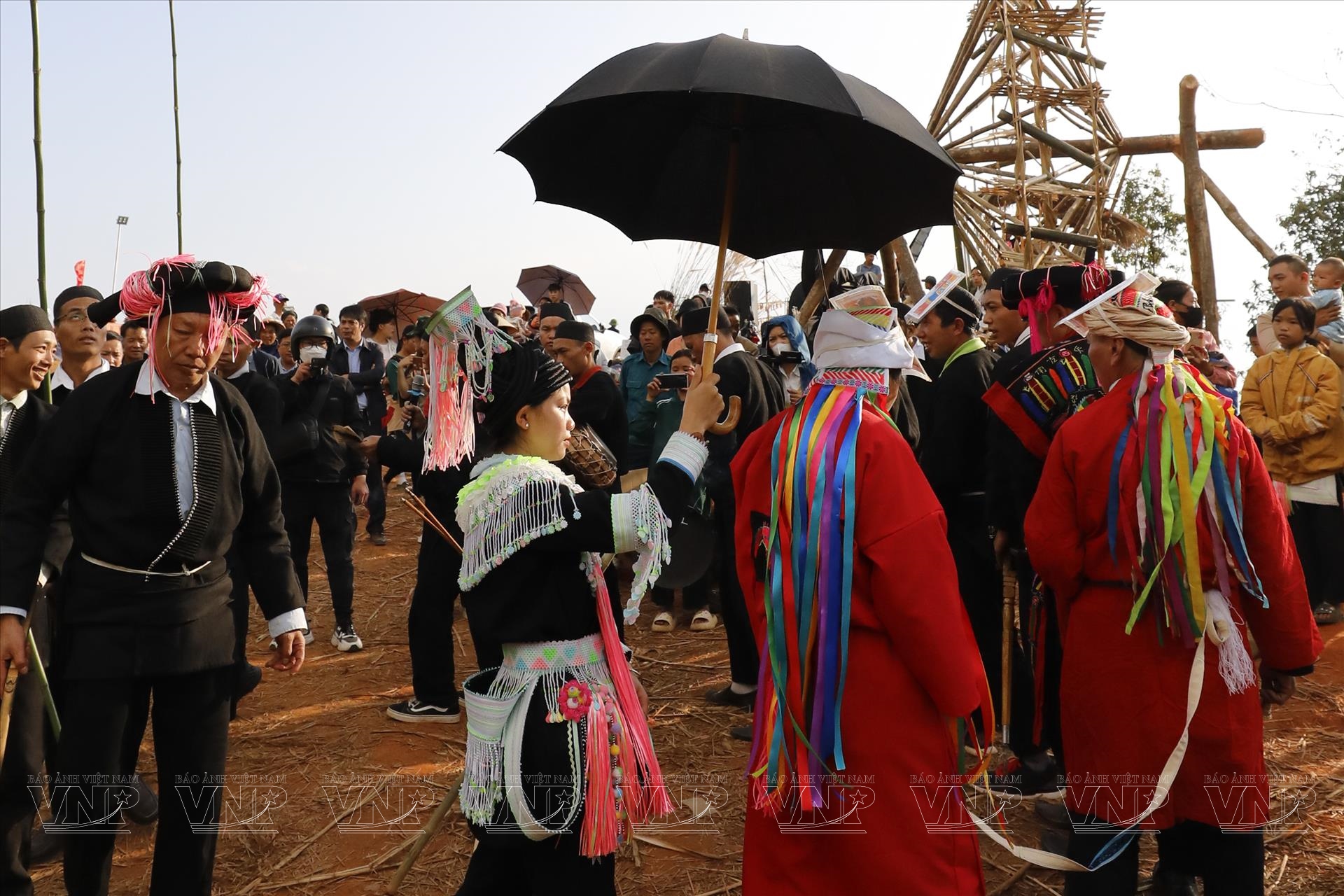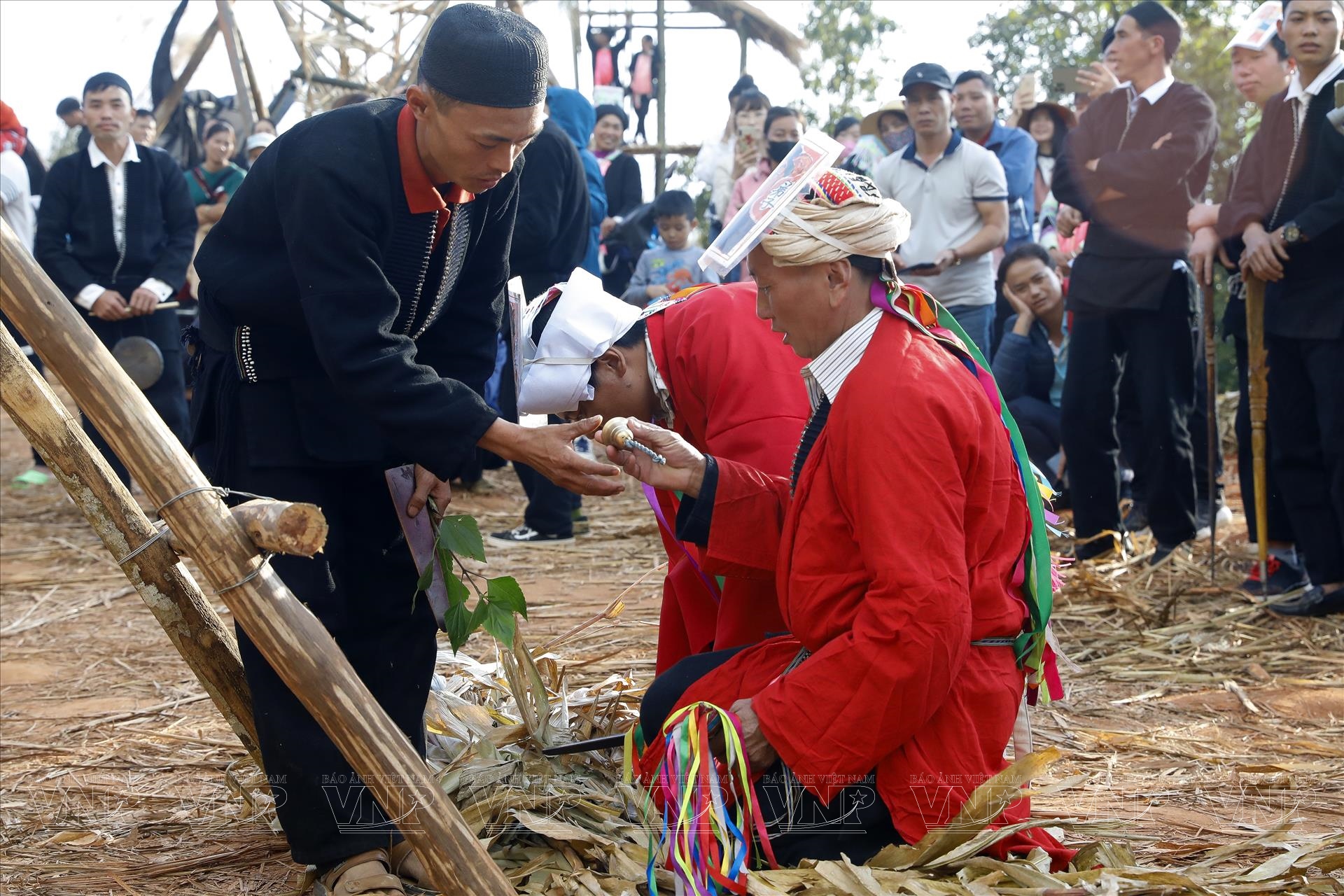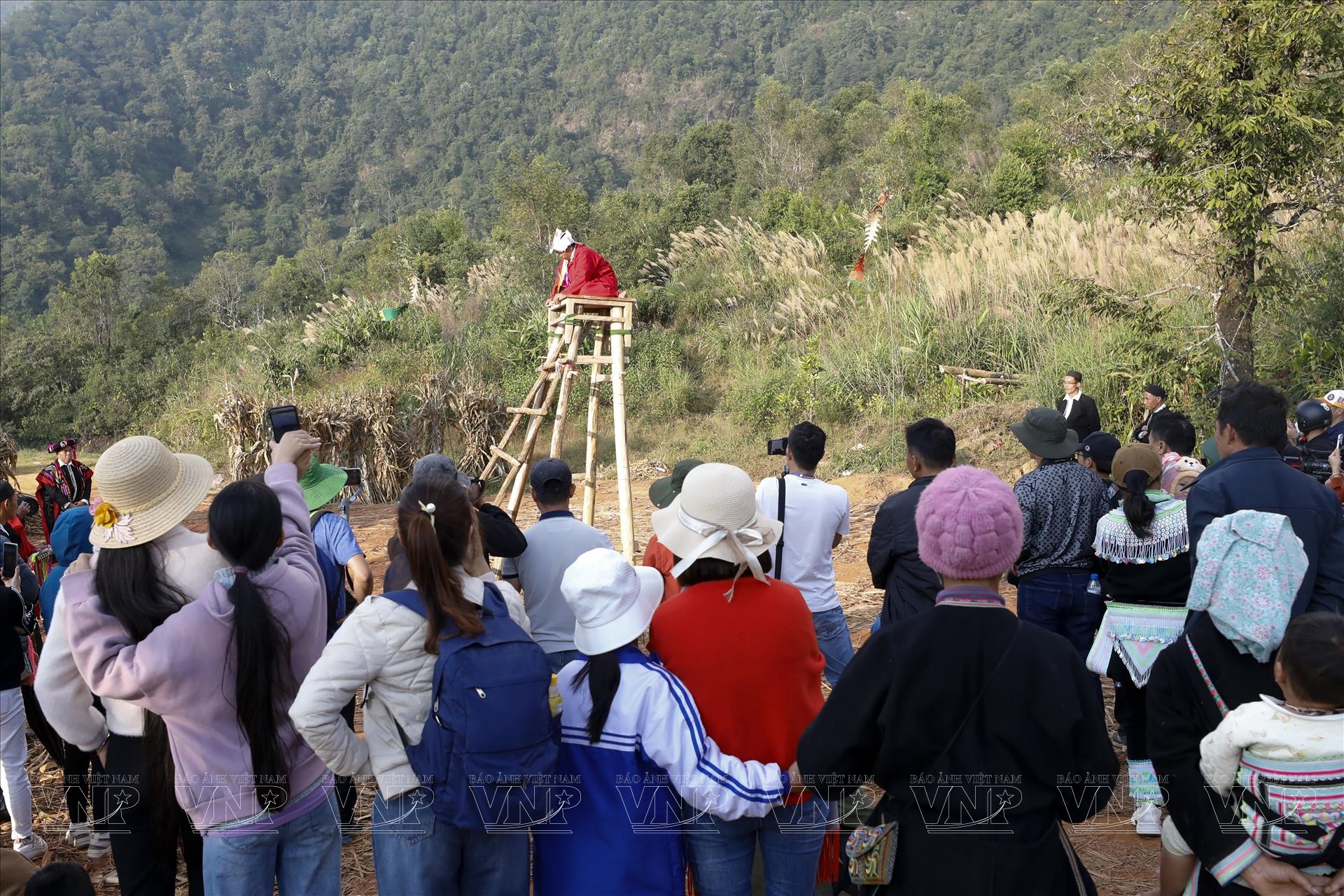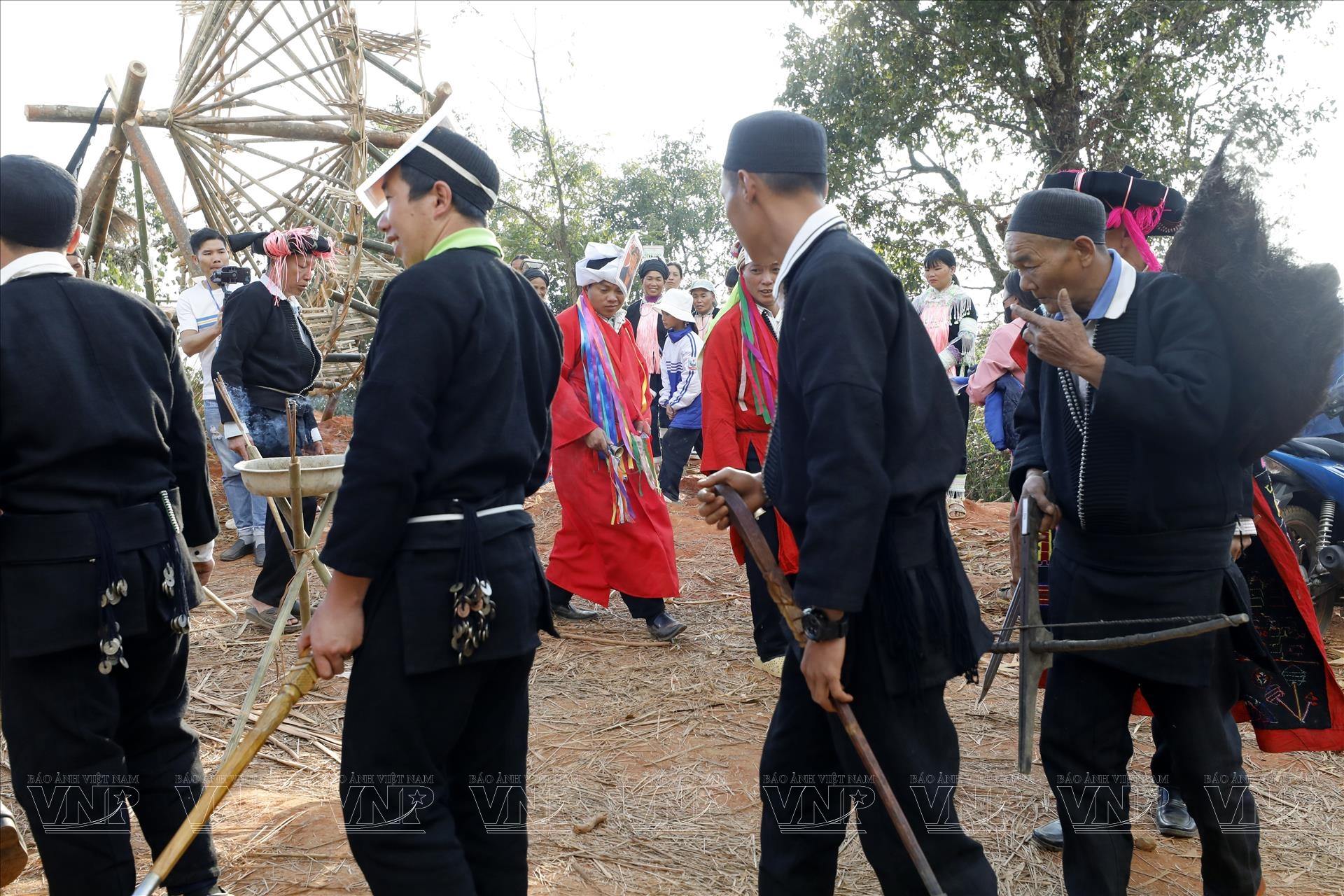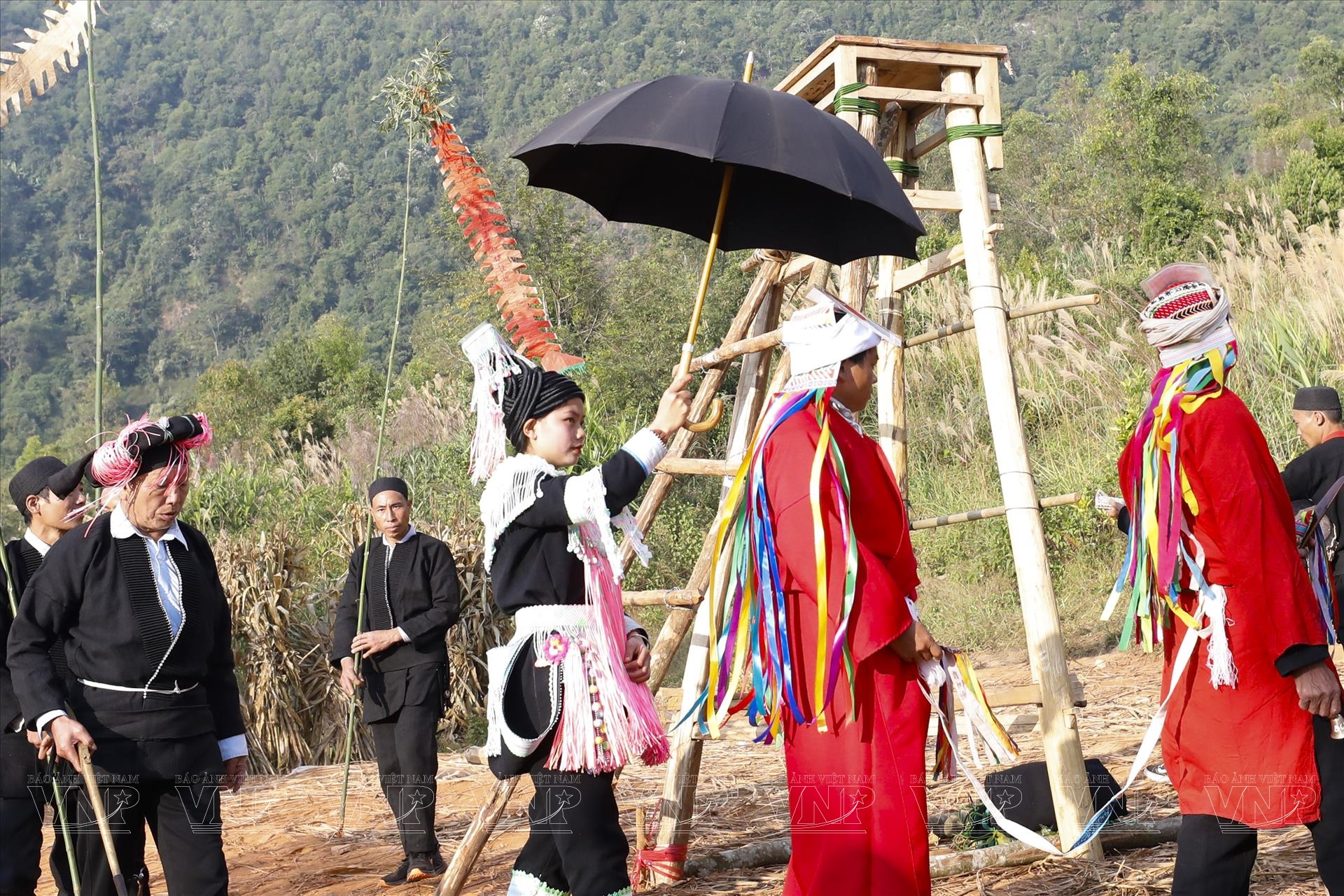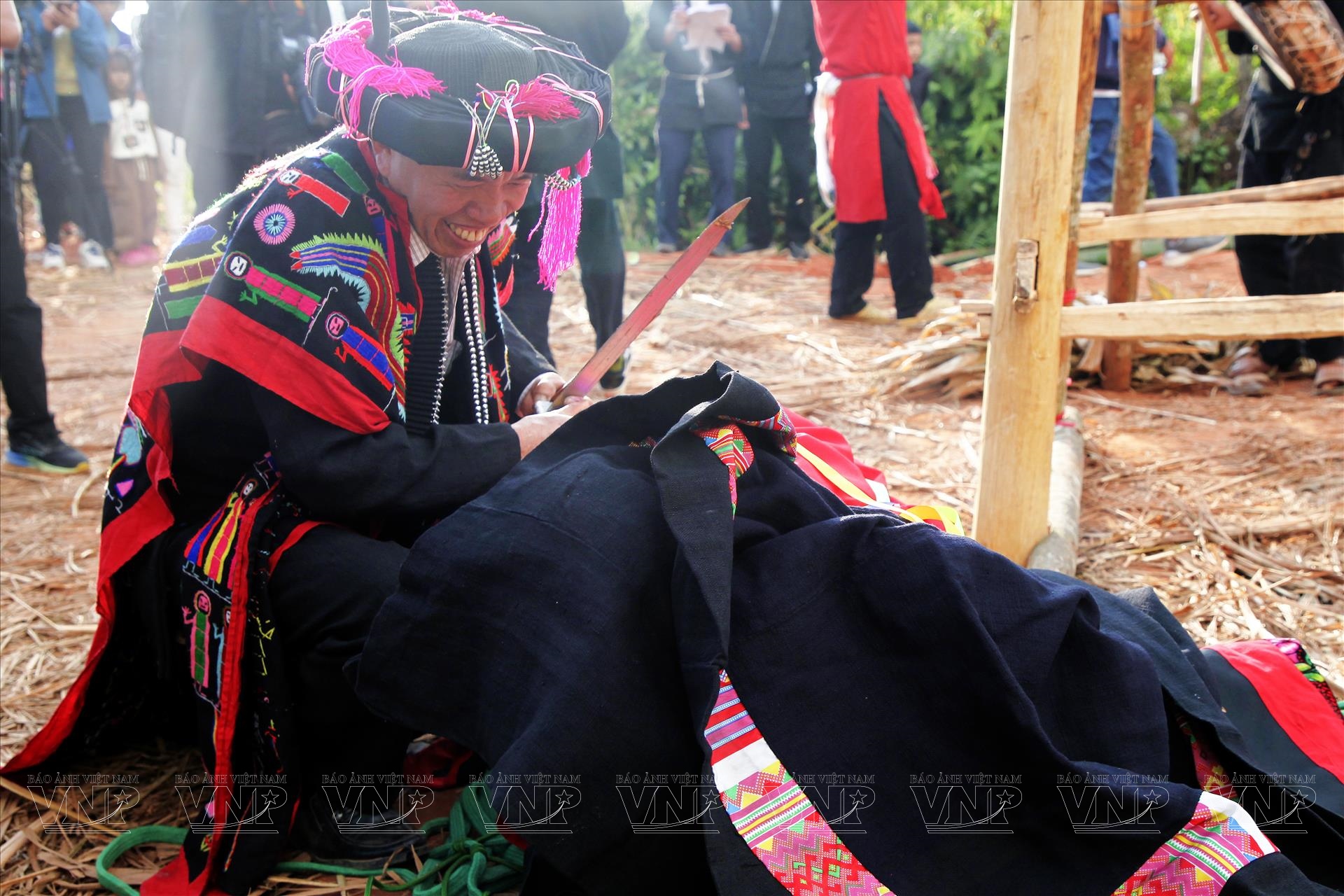The Tu Cai Ceremony of the Dao Dau Bang
The Tu Cai ceremony, also known as Le cap sac, for the Dao Dau Bang in Ho Thau Commune, Tam Duong District, Lai Chau Province, is typically organized in the last months of the year. This ritual holds special significance in the life of every Dao man.
It is believed that only after undergoing this rite of passage can a young man be considered mature. This implies that he is then deemed capable of shouldering family and community responsibilities, and can reunite with his ancestors after death.
It is believed that only after undergoing this rite of passage can a young man be considered mature. This implies that he is then deemed capable of shouldering family and community responsibilities, and can reunite with his ancestors after death.
In the past, the Tu Cai ceremony was from seven to nine days depending on the specific rituals conducted by the sorcerers, but nowadays, the ceremony typically lasts around three days. Throughout the duration of the ceremony, the initiates undergo various spiritual activities led by experienced sorcerers or guides. These activities are designed to impart knowledge and skills to the individuals undergoing the rite of passage.
Under the guidance of the sorcerers, the initiates engage in learning and overcoming a series of spiritual activities. These activities include studying and practicing ritual ceremonies, learning traditional dance moves, and becoming acquainted with the use of musical instruments. Particularly noteworthy is the teaching of moral and ethical principles regarding responsibilities and proper behavior within the family and community.
During this immersive experience, the ritual masters share their wisdom with the initiates, fostering a deeper understanding of their cultural heritage and instilling a sense of duty and respect for their role in both family and community life.
The most significant ritual in the ceremony of the Dao Dau Bang is the moment when the initiates perform “roi dai” (the falling from a platform). During this pivotal moment, witnessed by the sorcerers and the community, the initiate must climb onto a high platform, face backward, and then naturally fall onto a net suspended below.
This net is stretched and held by six to seven sorcerers. The net is covered with a flowered blanket, and the person jumping must land in a curled position reminiscent of the fetal position. As soon as the person touches the net, the sorcerers swiftly lower the net to the ground and roll up the blanket to envelop the initiate completely. The officiator of the ceremony is the only one allowed to unwrap the blanket and welcome the initiate outside.
For the Dao Dau Bang, this ritual not only tests courage but also signifies a symbolic rebirth for the initiates. After undergoing the "roi dai" ritual, the individuals are considered to be born anew. From this point forward, they are officially recognized as adults within the Dao community.
The Tu Cai ceremony stands as a significant milestone for each individual and represents a crucial communal activity for the Dao Dau Bang. Beyond being an occasion to honor the ritual practitioners, it serves as a vital opportunity for community members to demonstrate their solidarity. These elements combine to create a distinctive traditional ceremony that symbolizes unity and prosperity within the Dao Dau Bang community in Ho Thau.
By Viet Cuong/VNP Translated by Nguyen Tuoi
